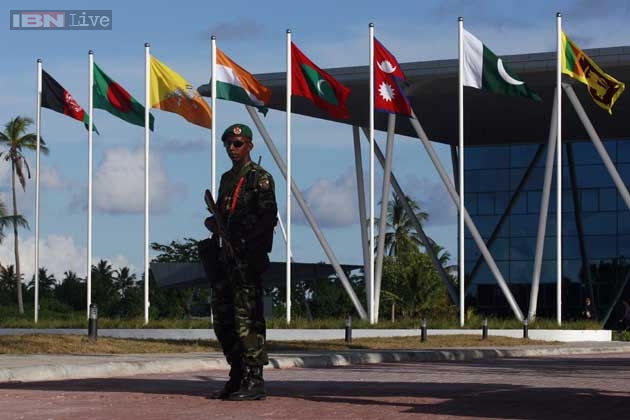The South Asian Association for Regional Cooperation (SAARC) has been regularly slammed for its inability to address key regional issues such as terrorism, insecurity, poverty, unified banking system, free trade and movement of people. Inflexible stance and adventurist policies of Pakistan are major barriers that hamper growth of SAARC. Islamabad has long been criticized by Kabul, New Delhi and Dhaka for interference in affairs of the neighboring countries, and allowing extremist groups to operate freely. Almost over 90 percent of the terrorists groups in the region are enjoying safe havens in Pakistan. Ironically, Pakistan claimed to victim of the terrorism.
Now, the question is that if a state claim to be victim than it must identify the sponsors and take concrete steps to eliminate terrorist groups. Notorious domestic and trans-national terror organizations such as al-Qaeda, Haqqani Network, Afghan Taliban, Hizb-ul-Mujahideen, Hakta-ul-Mujahideen, Lashkar-e-Toiba, Sipah-e-Sahaba, and Lashkar-e-Jhangvi are enjoying support on the state level; otherwise, there had not been so many deadly groups in Pakistan despite strong regional and global opposition. Former Pakistani civilian and military leaders have acknowledged that Islamabad created and nurtured the terrorist outfits deliberately to achieve tactical objectives. Pervez Musharraf, Asif Ali Zardari, and Sartaj Aziz are among those who admitted that Pakistan has supported trans-national militant organizations.
Side effects of Pakistan’s support for extremists are many. Not only the South Asia region but other parts of the world are also facing serious security threats. Moreover, future of the different regional organizations is bleak. SAARC is one of them. The association for regional cooperation failed to convince Pakistan to stop supporting terrorists. The result is that it had not major achievements and fighting for its survival. SAARC will soon become a history if the upcoming summit in Islamabad was not attended by Afghanistan, India, Bangladesh and Bhutan. It will be a blowback for the association as well as Islamabad. Pakistan will become isolated in the region.
The idea to boycott the SAARC summit which is scheduled to take place in November is gaining popularity. The proposal has been floated by Afghanistan’s ambassador to New Delhi, Shaida Mohammad Abdali. To calm the situation, the SAARC member countries will have to make tough choices—either leave the organization or suspend membership of Pakistan till terror groups are eliminated. Both decisions will have pros and cons.
Dismantling SAARC will change the political landscape of South Asia and create different challenges. Boycott of the summit will also affect the SAARC. It is feared that the regional body will collapse because it will be caught in regional rivalries and controversies. SAARC has already lost trust of the South Asians. Boycott of the upcoming summit could prove final nail on coffin of the ailing regional cooperation body that has achieved little since 1985.
Therefore, it will be better to adopt the middle way—attend the summit and put pressure on Pakistan to stop supporting terrorists.
 Afghanistan Times
Afghanistan Times




